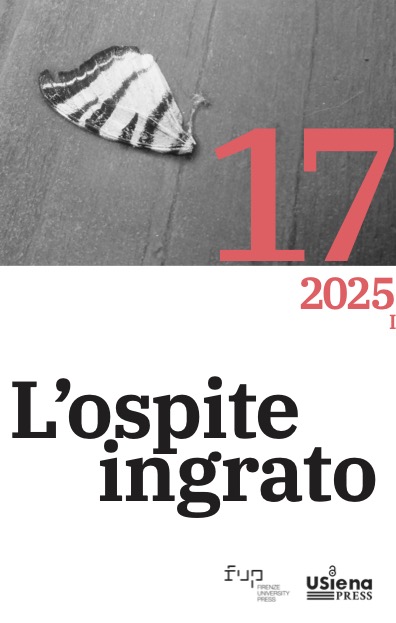Published 2025-06-25
Keywords
- translation,
- postcolonial literature,
- woman,
- trauma,
- apartheid
How to Cite
Copyright (c) 2025 Franca Cavagnoli

This work is licensed under a Creative Commons Attribution 4.0 International License.
Abstract
In translating J.M. Coetzee’s novels related to the category of trauma, one is confronted with stylistic peculiarities such as fragmentary passages, repetitions, elliptical constructions, and structural deviations, which are typical of traumatic memory at both the collective level – the experience of slavery and apartheid – and the individual level. This is particularly evident in In the Heart of the Country (1978), where the story is told by a woman and trauma is intertwined with specific aspects of her position in South African society. If, on one hand, preserving traumatic memories means avoiding a rationalizing tendency in the course of translation, on the other hand it means respecting the silences that pervade the pages and not filling them just to make the text more coherent. Such a translation project may mean coming into conflict with the publishing house, which tends to normalize the text in the belief that readers may not easily understand.

